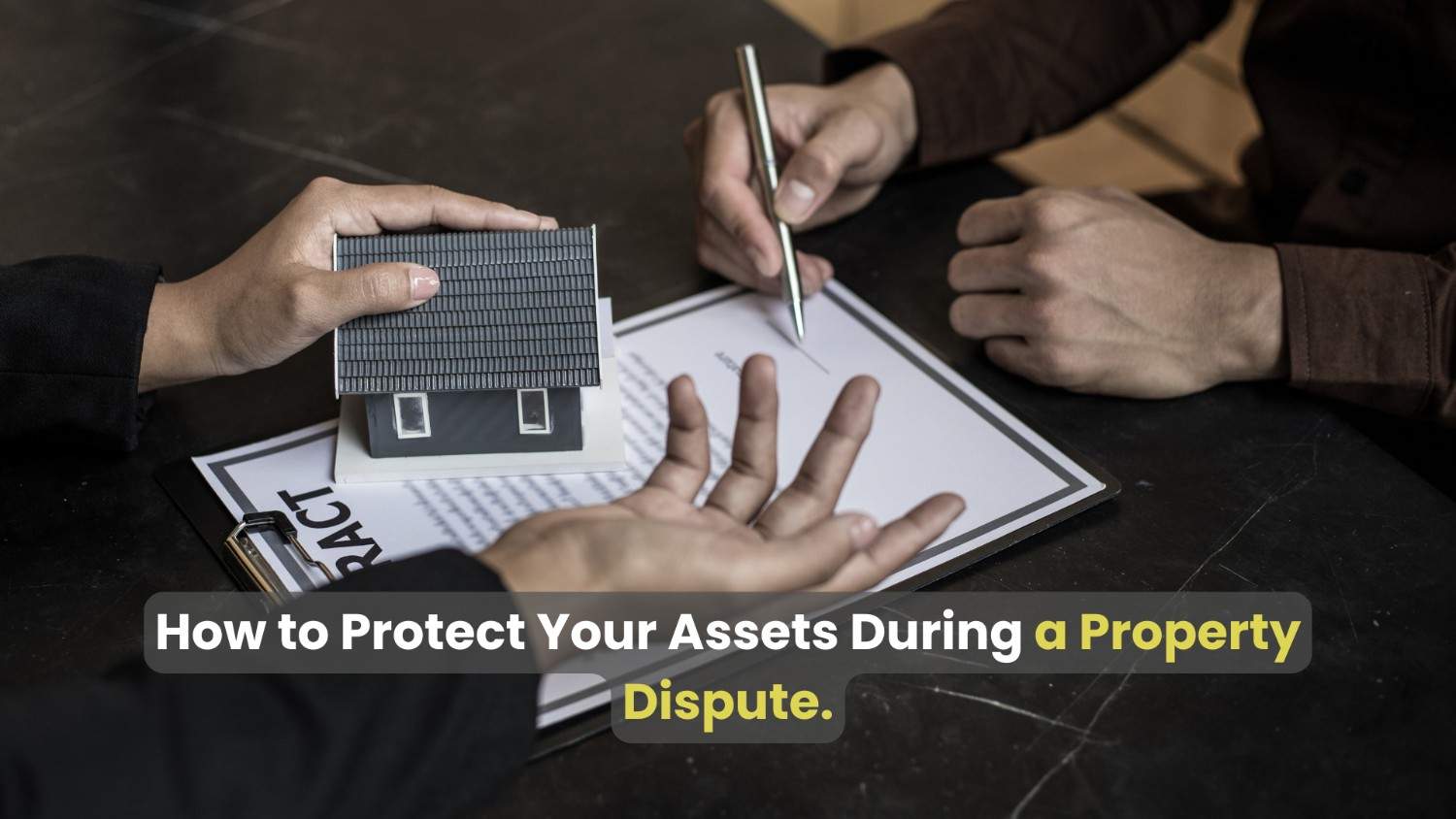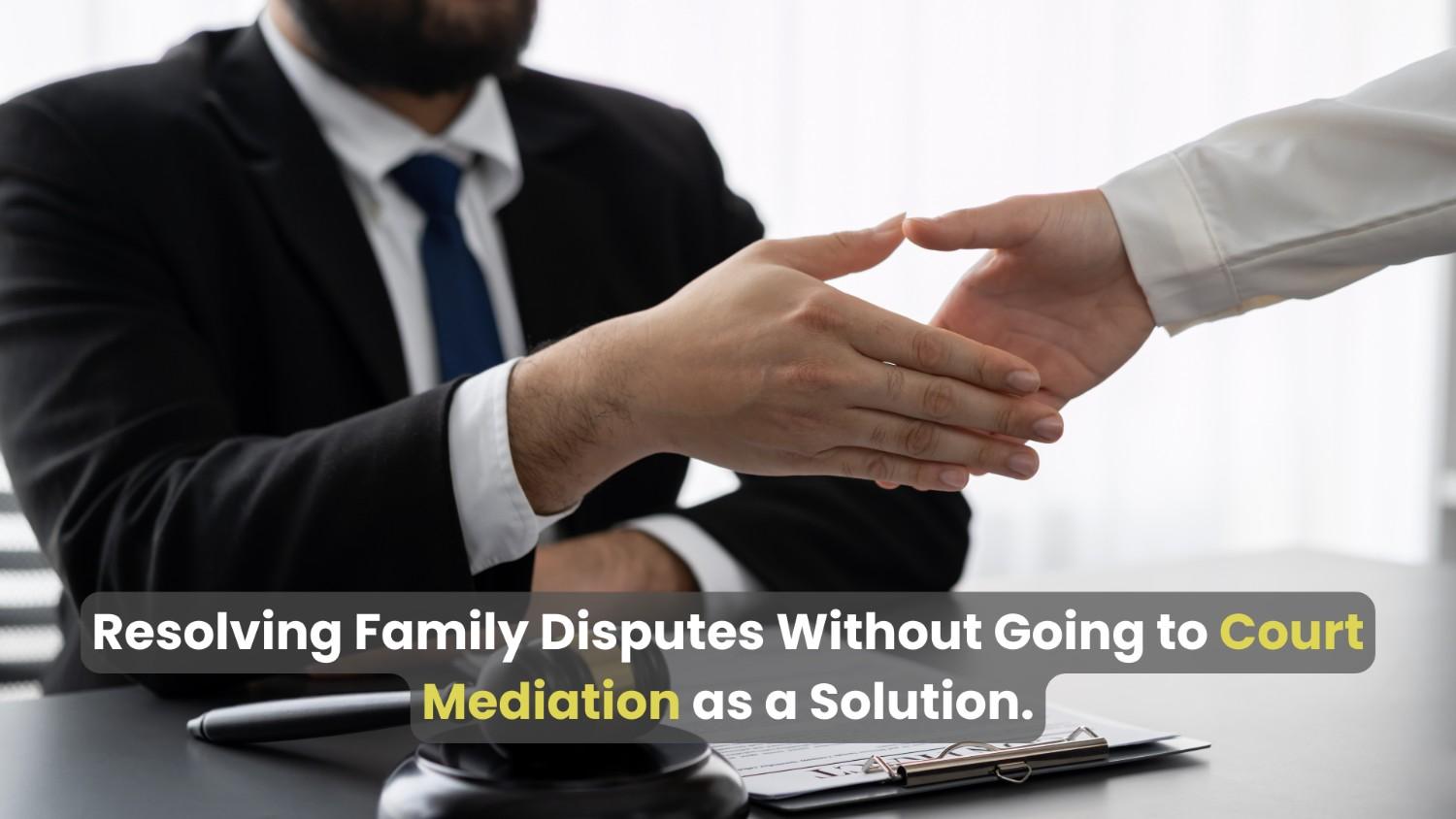· Legal Advice · 3 min read
How to Protect Your Assets During a Property Dispute
Property disputes can be financially and emotionally draining. Learn effective strategies to protect your assets, from securing legal documentation to exploring alternative dispute resolution methods like mediation and arbitration. Stay proactive to safeguard what matters most.

Introduction to Property Disputes
Property disputes can arise suddenly, often leaving individuals unprepared to safeguard their financial interests. Knowing how to protect your assets during such times is critical to avoiding financial losses and emotional stress.
Understanding Property Disputes
A property dispute refers to any legal disagreement involving land, real estate, or other physical properties. These disputes can involve multiple parties, including family members, neighbors, or business associates.
Common Causes of Property Disputes
Inheritance issues
Joint ownership conflicts
Boundary disagreements
Breach of property contracts
Why Asset Protection is Critical During Property Disputes
Financial Implications
Property disputes often involve large sums of money. Without proper safeguards, you risk losing significant financial assets.
Emotional Stress and Impact
The emotional toll of property disputes can be overwhelming. Clear strategies to protect assets can reduce stress and create a sense of control.
Steps to Protect Your Assets During a Property Dispute
Assessing Your Assets
Take inventory of all your assets, including property, bank accounts, and investments, to understand what’s at stake.
Securing Legal Documentation
Ensure all property-related documents, such as deeds, agreements, and contracts, are up-to-date and securely stored.
Hiring a Competent Attorney
An experienced property lawyer can provide legal advice, represent you in court, and help implement asset protection strategies.
Using Trusts and Legal Entities
Place valuable assets in trusts or other legal entities to protect them from being seized or disputed.
Legal Strategies to Safeguard Assets
Injunctions and Legal Holds
Request a court injunction to prevent the other party from transferring or selling disputed assets during litigation.
Limiting Joint Ownership Risks
If you co-own property, consider agreements that specify terms of usage, sale, and dispute resolution.
Creating Property Agreements
Having clear, written agreements outlining ownership and usage rights can prevent misunderstandings.
Alternative Dispute Resolution Methods
Mediation
Mediation involves a neutral third party to help resolve disputes amicably without going to court.
Arbitration
In arbitration, a third-party arbitrator makes binding decisions, offering a quicker resolution compared to litigation.
Financial Management During a Property Dispute
Freezing Joint Accounts
If disputes involve joint accounts, freeze them to prevent unauthorized withdrawals or misuse.
Keeping Separate Financial Records
Maintain clear financial records to protect your claims and demonstrate transparency during legal proceedings.
The Role of Insurance in Asset Protection
Property Insurance
Ensure that your property is adequately insured to cover potential damages or losses.
Title Insurance
Title insurance can protect you from claims arising due to title disputes, fraud, or hidden liens.
How to Prevent Future Property Disputes
Drafting Clear Agreements
Whether it’s a rental agreement, property purchase, or joint ownership, ensure all terms are documented clearly.
Regular Property Audits
Periodic reviews of your property’s legal status can help identify potential issues early.
Conclusion: Protecting Your Interests
Protecting your assets during a property dispute is not just about legal measures—it’s about adopting a proactive approach to safeguard your financial and emotional well-being. By securing proper documentation, engaging professional help, and exploring amicable solutions, you can navigate disputes effectively and protect what matters most.
FAQs on Asset Protection During Property Disputes
1. What legal documents are essential in a property dispute?
Deeds, contracts, and agreements detailing ownership and usage rights are critical in resolving disputes.
2. How does mediation help resolve property disputes?
Mediation facilitates productive discussions between parties, helping them reach a mutually agreeable solution without litigation.
3. Can a trust protect my property during a dispute?
Yes, placing assets in a trust can shield them from direct claims during disputes.
4. What is the role of a financial advisor in a property dispute?
A financial advisor can provide insights into managing finances and safeguarding assets effectively during disputes.
5. Are property disputes always resolved in court?
No, many disputes are resolved through mediation, arbitration, or mutual agreements without court intervention.



